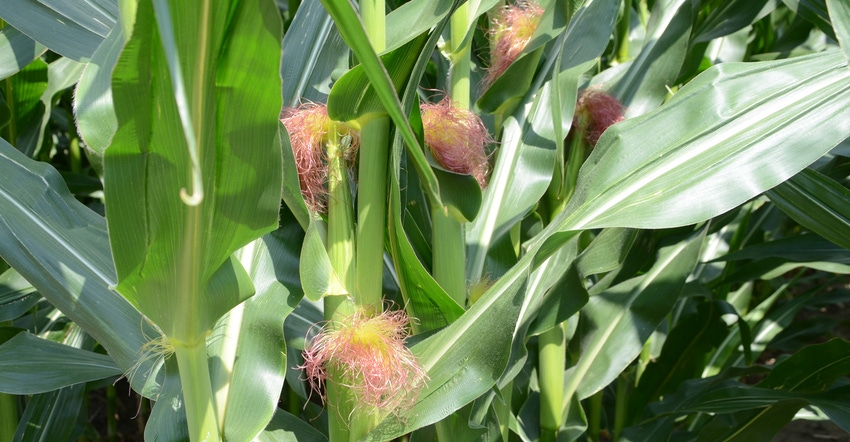November 9, 2020

Serendipity can be a powerful tool. When an oncologist and a chemical engineer connected a few years ago on a social level, it turns out the work of one created a new business for both — Solugen — and their work is creating new uses for corn.
Sean Hunt, a co-founder of Solugen, talked with Farm Progress recently about products, chemistry and new uses for corn. As for the serendipity? “It’s all just a weird coincidence,” Hunt recalls. “My wife went to medical school with my co-founder Gaurab Chakrabarti.”
Chakrabarti was studying enzymology while Hunt was studying chemical engineering, including the production of hydrogen peroxide. It’s a little complicated, but many biological processes in animals and humans produce hydrogen peroxide as a byproduct, causing cell damage if not eliminated. We’ve evolved enzymes to do this, but Hunt and Chakrabarti found an enzyme in pancreatic cancer that is more tolerant to hydrogen peroxide. When in a reactor without cells, the chemical processes at work always produce hydrogen peroxide, which has value in the chemical world.
The seedstock for making that peroxide is corn starch.
“We make other chemistries, but hydrogen peroxide is a byproduct, so I just say we’re a hydrogen peroxide company,” Hunt says.
The company produces industrial chemicals from corn that can be used in processes for descaling tanks, preventing corrosion, and — of course — bioperoxide. “So, corn is our big feedstock, and we think that for us, this is an extremely powerful starting molecule,” Hunt says. “You can do a lot with dextrose. Ultimately, the technology is there where we essentially take dextrose, oxidize any of the different carbon sites that we want to do, and really use it as a platform model [for new chemistry].”
Heady stuff for a farmer, but great news for new uses in corn.
Going meta with corn
The startup pivoted its hydrogen peroxide business when the pandemic hit, since it could be another source of this biocide that can help sterilize surfaces. But the longer-term focus is industrial chemicals and a new ag product that may have value in the specialty crop industry.
“One of our products, and I’ll use the word meta, so to speak, because we’re using corn to make products for agriculture,” he says. “This is chelated micronutrients. If you think about specialty crops, you can't just deliver N, P, K fertilizer. It has to be a little more advanced than that.”
The micronutrient product, which starts as corn, can deliver zinc, iron, copper, manganese and other micronutrients.
He notes that in this fertilizer market space, buyers have the choice between budget-priced nutrients or very high-end, high-cost chelated micronutrients. Solugen’s new product is aiming for the middle, but with features desirable to specialty crop buyers.
“We’re trying to be somewhere in the middle. We have a chelated micronutrient that’s OMRI [Organic Materials Review Institute]-certified for organic farming, and we can be at a price point with a product that has the performance of a chelated micronutrient, but you’re not paying a huge premium for it.”
Hunt explains that as a startup, there’s more work to be done in the area of distribution. Getting new tools from production plant to the field isn’t always easy. He explains that the company is just getting its start and focusing on specialty crops, where chelated micronutrients offer the most benefit, and that this is the right approach, given Solugen’s scale and capacity.
The key for corn farmers is that this startup has found a new way to use corn starch that goes beyond replacing plastic. The company is replacing industrial petrochemicals with a bioproduct that offers a range of benefits for future buyers. It’s good news for those promoting new uses for commodity crops.
You can learn more at solugentech.com.
About the Author(s)
You May Also Like






